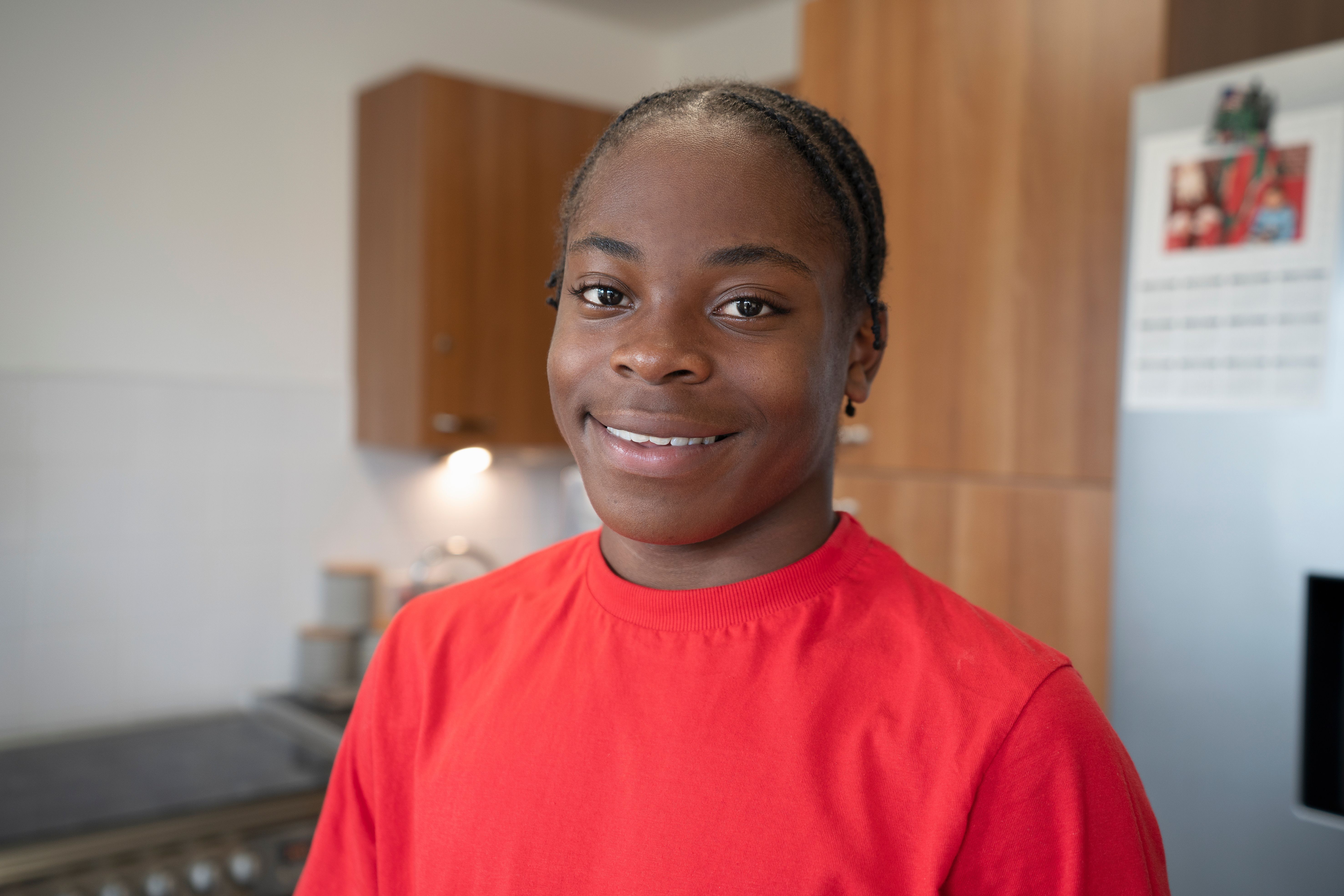
All youth placed with St. Christopher’s residential treatment center receive: (1) clinical services, including assessment, treatment planning therapy and case management; (2) medical services, including assessment, medication management, treatment for minor illnesses and injuries, well-child visits, and nursing services; 3) special education through the Greenburgh-North Castle Union Free School District; and (4) residential services, including skills-building via therapeutic cottage-based and recreational activities, and Independent Living Skills instruction. Eligible youth also receive Aftercare Services.

MEDICAL SERVICES
Medical Services include psychiatric services, pediatric services and nursing services. A medical social worker helps to coordinate care when specialist medical services are required.
Assessments provided by the medical team include:
· Health Screening within 24 hours of admission
· Comprehensive Psychiatric evaluation
· Comprehensive Medical Assessment (developmental assessment and including substance abuse screening on the CRAFFT).
· Dental Exam (by an outside provider)
After the initial assessments, monthly medication reviews are conducted for all youth on psychiatric medications. Nurses provide information pertaining to family planning and human sexuality, including education on and desire for STD/HIV testing semi-annually. Psychiatric and Comprehensive Physical exams are repeated annually. Sick child visits with the pediatrician, nursing services, and additional psychiatric services are offered as needed.
EDUCATIONAL SERVICES
Greenburgh-North Castle U.F.S.D. is an independent school district that can award junior and senior high school credits to youngsters on their way to earning a New York High School diploma. The educational program offers a full range of middle and high school courses in small classroom settings as well as the opportunity to earn a New York State local diploma, Regents or advanced Regents diploma depending upon the needs and capacities of the student. Students are offered SAT preparation courses. The school offers a twelve month program, which includes a six-week summer session providing academic enrichment or extensive remediation. Students are placed in classes based on academic level, age and social development. Student-teacher ratio is 6:1:2 at REACH Academy and 6:1:1 at Clark Academy. At the REACH Academy speech services and occupational therapy are integrated into the overall program as driven by IEP mandates or clinical needs. Built into the school program is a support team including clinical staff and youth care counselors to provide additional support during the school day.
RESIDENTIAL SERVICES
The Agency provides Independent Living Skills Services to each youth. It is the agency’s goal to normalize and prepare our children for return to their community and independence. These services will are informed by the results Ansell-Casey Life Skills Assessment. Independent Living Skills is usually provided in a group format approximately weekly.
The agency also provides Skill Building services through the residential cottage managers and recreation staff. These providers use the Service Plan created by the clinical department to guide their work with the youth around using/practicing coping skills in applied settings and around using coping skills to manage crises.
AFTERCARE SERVICES
St. Christopher’s, Inc. offers Aftercare Services to all youth discharged to a non-congregate care setting. These services are provided by the youth’s individual clinician or the Aftercare service provider, depending on availability. Services are offered for a minimum of 6 months. For youth who are under 21 at discharge, services may be provided until they turn 21. The minimum service provided is clinical case management. For youth who are eligible for continuation of services under CFTSS and Article 29i, services can include the same individual and family clinical services that a youth on campus would, namely regular individual therapy sessions, parent counseling and support, and family therapy, as indicated by their Service Plan. Aftercare Services may be supplemented by enrollment in St. Christopher’s Health Home Program for eligible youth.
CLINICAL TREATMENT
Our therapeutic are provided of seasoned professionals (LCSW, LMSW, Psy.D, Ph.D., LMHC) who have had extensive training in psychological services and experience in working with adolescents and their families. Their expertise includes various modalities of therapy (individual, group, and family therapy), residential treatment, special education, and community collaboration.
All youth are assessed upon admission and reassessed at least annually thereafter. The initial clinical assessment includes a trauma screening, a depression screening, and a full psychosocial, developmental, and mental health assessment.
All youth are offered individual therapy on a weekly basis and may be seen more often as needed. Group therapy is provided weekly as well. Family therapy and parent counseling are available and are provided as needed. All youth also receive clinical case management services, including weekly communication regarding progress and events in the residential program, provision of parent counseling and support, home visit planning, and discharge planning.
The primary treatment model for clinical services in our residential treatment center (RTC) programs is Dialectical Behavior Therapy (DBT), which is a cognitive behavioral treatment that specifically focuses on learning specific coping skills tto provide all youth with a broader array of options when trying to solve existing problems. It is especially effective for youth are highly reactive to stress and who engage in self-harm and other ineffective coping behaviors. DBT is used at St. Christopher’s, Inc. as the primary structure for the group therapy sessions held weekly.
To supplement DBT, our clinicians also provide Collaborative Problem Solving, Trauma-Focused CBT, and Animal Assisted Interventions.
Collaborative Problem Solving (CPS) is an evidence-based cognitive-behavioral approach for working with youth who have significant emotional meltdowns and acting out behaviors. There is significant overlap with the DBT model in terms of skill areas addressed. However, the intervention itself is somewhat simpler for youth and families that find some of the concepts in DBT too complex.
Trauma Focused Cognitive Behavior Therapy (TF-CBT) is an evidence based cognitive behavioral therapy specifically targets the special needs of children and adolescents who are experiencing adverse reactions to trauma. Since DBT and CPS do not specifically address trauma, TF-CBT is a strong supplement as it targets response to trauma and related issues specifically while also building on coping skills that are targeted in DBT and CPS. TF-CBT may be offered throughout the youth’s stay or only for a time-limited period.
Animal Assisted Interventions are used primarily at our Valhalla Campus. They have been used to improve outcomes when working with youth who need the added support or access to non-verbal interventions in order to benefit from our more traditional interventions.
All youth receive treatment and discharge planning services which begin on the day of admission when the clinician meets with the youth and family to develop the Initial Service Plan, the Family Visiting plan, and the Individualized Crisis Management Plan. Plans are comprehensive, including clinical, residential, and medical services. These plans are reviewed with the full support team quarterly and with the youth and family every month. Families who cannot attend reviews in person are provided with telehealth and telephonic options for participation. If services (e.g., substance abuse treatment) are required that the agency cannot provided, referrals are made to appropriate providers who are expected to provide regular feedback to the support team and family as appropriate. Discharge plans are reviewed thoroughly at every Service Plan Review. We feel that the opportunity for long-lasting change is maximized when the transition, both out of placement and into adulthood, is the result of an agency-child-family-community partnership. Discharge resources may include OMH Services, OPWDD Services, ACCESS-VR, Aftercare CFTSS Services, and Health Homes.
For youth placed by DSS we work diligently to identify permanency resources and link youth to an extended support network beyond their immediate caregiver to optimize post-discharge success.


